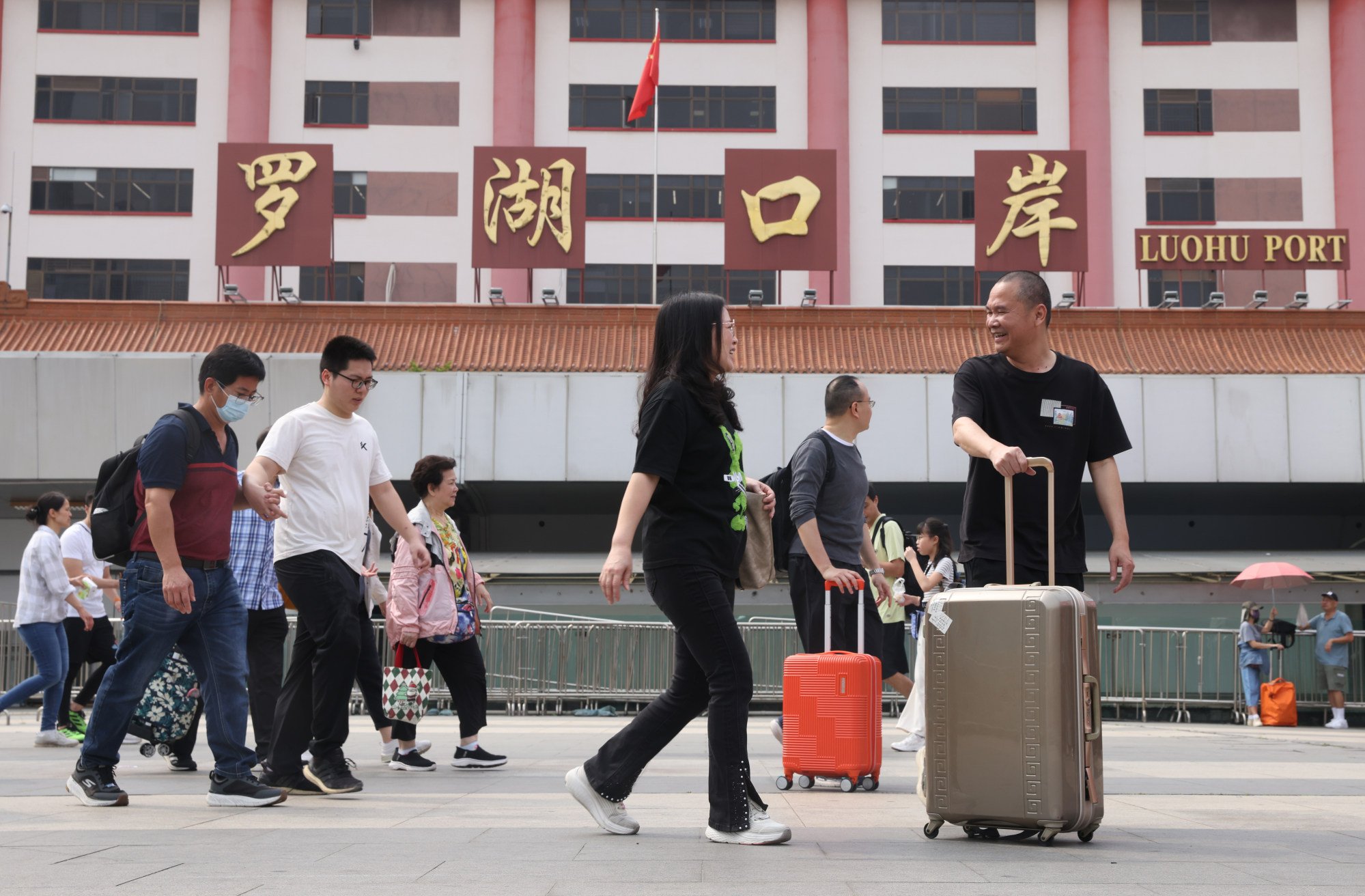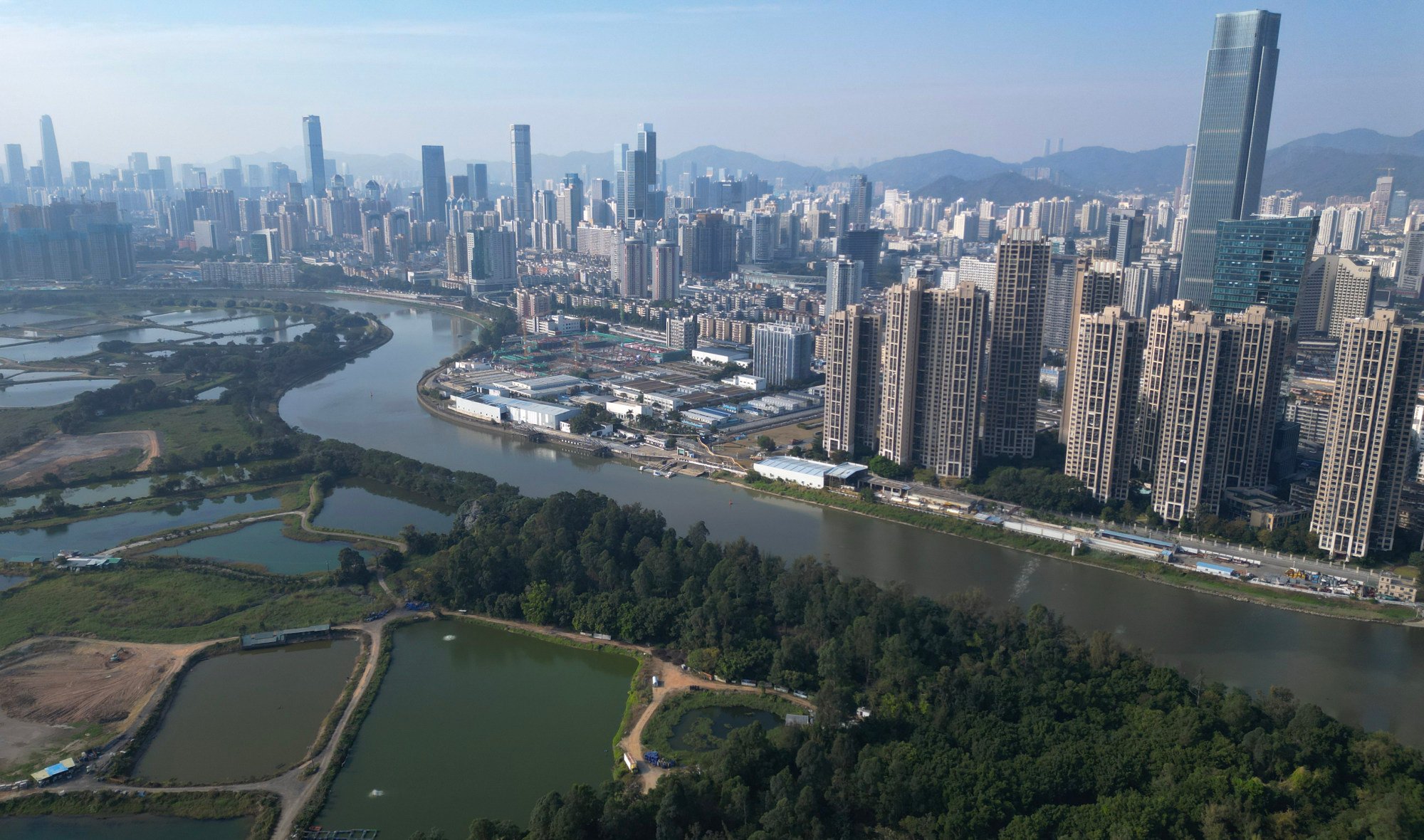Travel
All you need to know: mainland China permit for Hong Kong permanent residents

The Post unpacks what you need to know about the new permit.
1. What is the new visa policy?
Starting from July 10, non-Chinese permanent residents of Hong Kong and Macau may obtain a five-year travel permit with multiple entries to the mainland for short-term purposes such as investment, visiting relatives, tourism, business, seminars and exchanges.
However, they may not engage in work, study or news-gathering activities.
Permit holders may spend up to 90 days for each stay on the mainland and enjoy self-service clearance at control points once they complete procedures such as having their fingerprints taken at ports of entry.
2. Who will benefit?
There is no restriction on the nationality or occupation of applicants.
Eligible residents can apply for the permit through China Travel Service (Holdings) in both Hong Kong and Macau. It takes 20 working days for the permit to be issued after the application is approved.
The first application will cost HK$260 (US$33), with renewals or replacements on the mainland costing 230 yuan.
Beginning on Tuesday, applicants who apply online can schedule a date for counter service that takes place within 28 days of the online application. The Post checked the website at 11.30am, which indicated the daily quota was full.
Applicants have to provide their permanent resident ID cards, passports recognised by the Chinese government and proof of nationality from the Immigration Department. The latter includes the applicant’s last-declared nationality and eligibility for applying for a Hong Kong ID card.
As of June, about 270,000 non-Chinese residents held Hong Kong permanent identity cards, excluding children under the age of 11.
3. Why is Beijing introducing the permit?
The National Immigration Administration said the new measure aimed to facilitate people-to-people exchanges between Hong Kong, Macau and the mainland, and to help both cities better integrate into overall national development.
Chief Executive John Lee Ka-chiu said it would greatly help Hong Kong maintain its international character and diversity, providing a significant incentive for companies and talent from around the world to settle in Hong Kong.
4. What are the existing entry requirements?
Currently, permanent residents who are not Chinese nationals need to apply for a visa for their mainland visits, and it takes three to four days to process.
Visa fees vary according to nationality. The average fee ranges from HK$230 for a single-entry visa to HK$690 for a one-year multi-entry visa.
Such residents are currently required to use the manual channel at mainland ports of entry with their foreign passports. They must provide fingerprints and fill out entry cards each time they cross the border.
Beijing implemented a unilateral visa-free policy for ordinary passport holders from 12 countries – Germany, France, Italy, the Netherlands, Spain, Malaysia, Switzerland, Ireland, Hungary, Austria, Belgium and Luxembourg – from March 14, 2024 to December 31, 2025.
These passport holders are allowed to enter the mainland and stay for up to 15 days for business, tourism, family visits and transit purposes. Australia, New Zealand and Poland were added to the list starting from July.

5. What does the new permit mean for expatriates?
Most foreign commerce chambers in the city welcomed the new move.
Malaysian Chamber of Commerce chairman Gan Khai Choon said: “It could encourage more Malaysians and Asean businesses to locate to Hong Kong. After obtaining permanent residency, they could benefit from the easier access to the mainland and [thus] choose Hong Kong as a regional office.”
German Chamber of Commerce president Johannes Hack said he hoped the move would be further expanded to include non-permanent residents.
“Anything that targets [only] permanent residents by definition will not bring in new people.”
Josephine Orgill, chairwoman of the Australian Chamber of Commerce, said tangible benefits from the new permit, combined with Australians no longer needing tourist visas to travel to the mainland, were positive steps.
“[It] shows goodwill and partnership ahead of the Financial Secretary’s [Paul Chan Mo-po] visit to Australia later this year.”
Singapore Chamber of Commerce chairman Jacky Foo similarly commended the authorities for being proactive in responding to the needs of foreign businesses in Hong Kong.

6. How will the move affect Hong Kong?
Gary Ng Cheuk-yan, senior economist with Natixis Corporate and Investment Bank, said the measure would strengthen Hong Kong’s role as a trade and investment hub with easier cross-border access.
“It is a rare advantage that will differentiate Hong Kong from other Asian cities in terms of competitiveness,” Ng said.
Lawmaker Starry Lee Wai-king, who is also a member of the National People’s Congress Standing Committee, the country’s top legislative body, said the new move would help not just Hong Kong but also Macau integrate into overall national development.
“I believe the introduction of this policy will further promote extensive exchanges and interactions between the mainland, Hong Kong and Macau, facilitating smooth progress in various activities,” she said.
7. What other travel benefits has Beijing granted to Hong Kong?
Since May 6, the Greater Bay Area exit endorsement covers talent in Beijing and Shanghai while the duration of stay of business visits in Hong Kong has been extended from seven to 14 days.
The introduction of a “northbound” multiple-entry visa for foreign employees working in the city is also among the measures.
Additional reporting by Edith Lin










